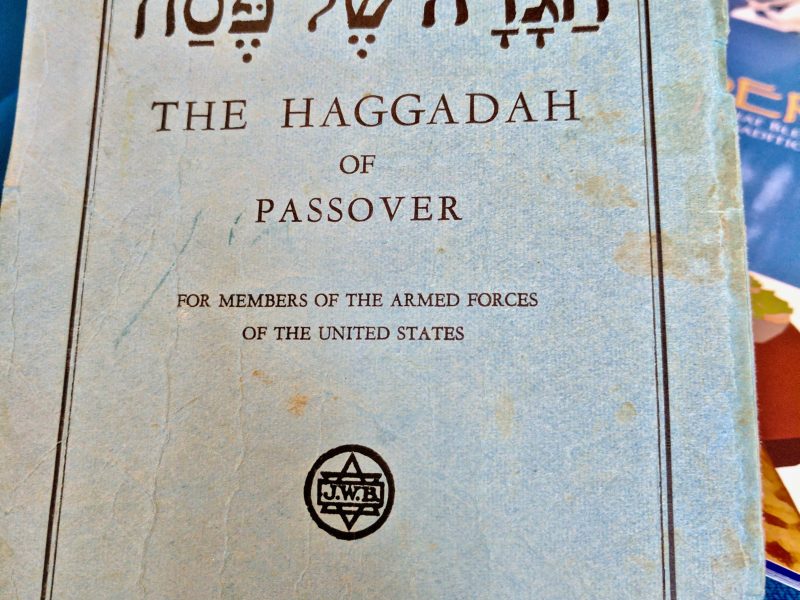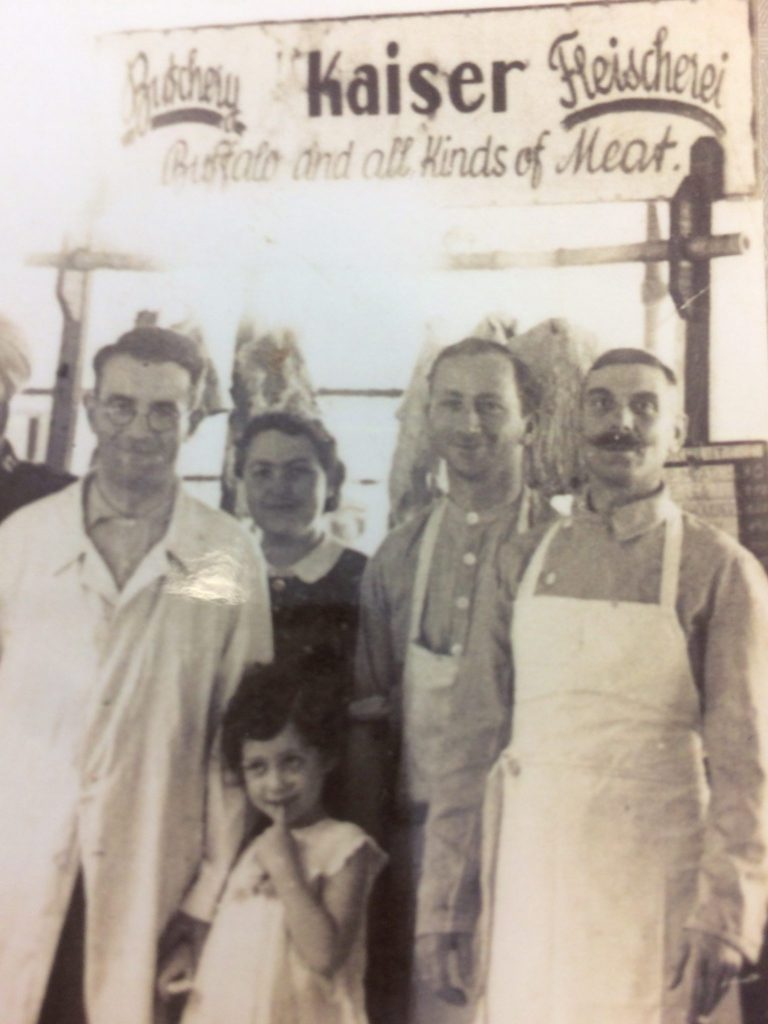Jewish Community Relations Council (JCRC)

The Transcendence of Passover — by Justin Kirschner
By Justin Kirschner, Associate Director, Jewish Community Relations Council of Cincinnati
The story of Passover is retold year after year, when family, friends, loved ones and sometimes guests from other cultures and communities join together to reflect on the Jewish exodus from Egypt, a journey of hardship and determination–the desire for freedom and a new way of life. At this most recent Passover, as I began to relax with loved ones, pour the first glass of wine and admire the ambiance of the Seder, my grandma Sonja (Sunny) shared with us a piece of history that embodied her past struggle, painting a personal picture and confirming a deeper meaning of the holiday itself. This piece of history, a 1945 US Armed Forces Haggadah provided by the National Jewish Welfare Board (known today as the Jewish Federations of North America or JFNA), held within it more than just the story of Passover, but our family’s journey of survival.
Over the past years, I’ve grown to increasingly appreciate the stories of my elders, as they hold so much truth and raw perspective on family history and how social conditions were in the past. I recently sat down with my grandma to learn more about her US Armed Forces Haggadah and the story behind it.

Almost 70 years to the day of our Seder, she recounts celebrating Passover on April 4, 1947. She was on a Navy transport ship with her family as they finally had the opportunity to emigrate from Shanghai, China to freedom in America. My grandma was only four years old when she and her parents, Fritz and Ruth Kaiser, fled Germany to escape the Nazi regime. With little in their possession, they left one war-torn country for another as they traveled by boat from Italy to the Hongkou ghetto in Shanghai, China along with about 20,000 other German and Austrian Jews.
Shanghai was a haven compared to Germany as my grandma described the constant filth, starvation, and disease that surrounded them under the Japanese occupation. The sense of normalness by which Sunny’s family approached their daily adversity is something to be admired. “It was just the way of life and all I ever knew…. My father wasn’t afraid and liked challenges,” my grandma said.
Fritz supplied daily food to the refugees by putting his sausage-making skills to work in the ghetto. Staying true to himself, he was able to make enough money to support his family and even help sustain the local English-speaking school my grandma attended, which was originally built by British Jewish citizens of Iraqi descent.
In 1945 when the war was ending and China was forcing all foreigners out, Fritz’s philanthropic and selfless character came full circle when a translator friend of his persuaded the US consulate in Shanghai to accept their affidavit sponsorship, allowing them the opportunity to start a new life in the United States. I asked my grandma to take me through the moment she arrived on the west coast shores of America:
“I couldn’t really believe what I saw. It was a beautiful, clean place and had things that I could only have dreamt of because I didn’t have anything that was normal in Shanghai. This is my home from now on. I’m home and I’m free and only good things will happen.”
At your next Passover Seder or for most Jewish holidays for that matter, I invite you take a deeper journey inward and reflect on the meaning and significant relevance these stories have to our lives. We must remember that among despair is opportunity, choice, and the possibility to cherish life even in the midst of struggle. From my grandma’s story, I learned that it is gratifying to listen to the experiences of those who are different, welcome new viewpoints into your way of thinking, and support your family and community. A child may be too young to understand and ask wise questions, as my grandma was at that time, but, in her words, “When you’ve never had freedom until the age of 12, you end up at times taking it for granted. Something cherished beyond words and after a while it became comfortable. No matter how many bad things that happened in life, there was always a sense of freedom to look forward to.”

